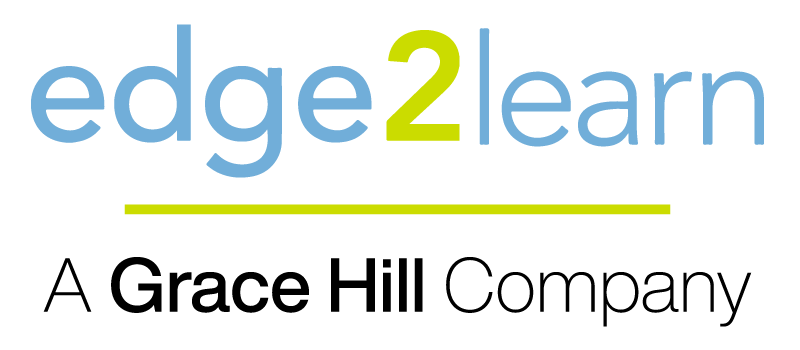While 2020 was a year full of unexpected challenges, 2021 is primed to usher in a period of hope, evolution, and innovation. After gaining a year’s worth of experience in responding to constant change, both individuals and businesses are becoming more adept at flexing their “adaptability” muscles. With that in mind, here are 3 multifamily learning and development trends and recommendations for 2021.
1. Change, change, and more change…
We now have a glimmer of light as the world begins to catch up with the challenges the pandemic presented. However, we still need to adapt to shifts in COVID-19 mandates and other legislative policies that will impact both residents and how we in the multifamily industry continue to adapt and perform. For multifamily learning and development, this means:
Supporting change management initiatives to deliver timely communication and training: Properties that can quickly communicate and implement policy changes and process adjustments will see immediate benefits. As policies and SOPs continue to evolve and are often different regionally, we can turn to unpolished “quick-hits” to communicate topics that may have a short shelf-life. Examples of these “quick-hits” items that can do the job in a pinch include job aids, informal YouTube-style video communications, just-in-time webinars, and simple resources/documentation.
Quickly providing just-in-time skills training: The above also applies to skills-specific training. In a time of constant change, ‘imperfect’ solutions and support presented now are better than ‘perfect’ solutions that come too late.
Creating long-term training for critical thinking and problem-solving: 2020 put a huge spotlight on the value of adaptability. We can cross all our fingers and toes that we don’t see another year like it, but there are lasting benefits in training our teams to use critical-thinking and problem-solving skills to adapt to unexpected circumstances. The most effective way of doing this is to teach these skills and provide ample, no-risk opportunities to practice them in role-specific and context-relevant scenarios.
2. Technology remains center stage.
As we continue to navigate the path forward, both leasing professional and properties will continue to use some of the newly adopted technologies that were thrust upon them in response to the COVID-19 pandemic. For multifamily learning and development teams, this means:
Providing more formalized training with new technologies: When the pandemic first hit, many of us may have experienced the “sink or swim” method of learning new technologies. At this point, most of our teams can perform basic functions with video-conferencing, customer management, and other applications that help us connect with and manage both our teammates and customers.
Many properties will decide to keep some of these technologies and practices post-pandemic. The next step is learning how to use them well, within each person’s respective job functions, and with a focus on both efficiency and effectiveness.
For example, your leasing professionals may know technically how to perform a virtual tour, but are they consistently doing it in an engaging manner? Do they use all the features at their disposal to show the best of your community and to personalize the tour to the customer’s specific needs?
Exploring and adopting new technology to support performance: Prior to and during the pandemic, many properties began to adopt AI technologies to support their leasing efforts. As we move forward, these technologies are becoming more accessible and affordable. Exploring AI technologies can help offset employee workloads and streamline team processes (e.g. AI to support phone and internet inquiries). They can also provide virtual practice opportunities to further refine and improve sales and customer service skills (e.g. AI video assessments). Increasingly, multifamily learning and development teams across many industries are using AI tools to support and supplement skills-based training.
3. Creative engagement wins first place.
Our usual ways of connecting with colleagues and customers have been turned upside down. While some of us have experienced a graceful transition, others will continue to need additional support. Those who transition well and quickly will see immediate benefits and can serve as great role models for others. For multifamily learning and development, this means:
Training our employees to connect in novel and innovative ways: Leasing professionals who have thrived by creating personal connections in a face-to-face environment may struggle in a new virtual-based environment. The technology itself is only the first challenge.
For example, your teams may excel in identifying customer needs and providing solutions during a tour, but can they nurture the lead in the same way in a virtual or hybrid environment? You cannot count on these skills to come naturally. Providing additional training to help on-site teams transition with role-based, context-relevant scenarios can work wonders.
Diversity, equity, and inclusion stay in the spotlight. DEI (Diversity, Equity and Inclusion) initiatives gained steam in 2020 and continue to grow into 2021. For multifamily learning and development, this means:
Supporting DEI initiatives with continued awareness, training, and communication: Core DEI training along with supporting initiatives will help communities communicate the value of diversity to both leasing professionals and residents.
The fundamentals still apply. The world will continue to evolve, but the basic principles of learning and performance improvement remain the same. True change occurs through time, with one small step leading to the next. Leading learning and development programs will remain focused on performance improvement and create a continuous learning experience with many opportunities for practice, repetition, and coaching between formal training sessions.
About the Author. Lan Lam, Chief Learning Innovation Officer for Edge2Learn. Lan has spent the last 20 years educating, engaging, motivating, and connecting with learners. Her career has been built around helping organizations to transform their learning and performance solutions into leading programs that leverage technology and keep pace with the shifting needs of modern learners.
Lan holds a Master’s Degree in Instructional Systems Design and Technology and is most passionate about creating innovative and effective learner experiences. Lan became part of Edge2Learn with a vision that anticipates the future potential of learning and technology. Her approach is anchored by proven learning and cognitive processing methodologies and her expertise is drawn from decades of collaborative efforts with forward-thinking clients spanning various industries.
About Edge2Learn. Edge2Learn is an eLearning company whose focus is the Property Management Industry and specializes in property management training and multifamily education. With almost 40 years of experience and a commitment to increase industry excellence, we are passionate about engaging learners to maximize benefits for both companies and employees. Aligned with well-respected industry leader, Ellis, Partners in Management Solutions, the Edge2Learn platform provides a turnkey solution for clearly identified needs and opportunities. We prepare learners to deliver a superior customer experience and also reduce corporate liability risks and overall employee turnover.



